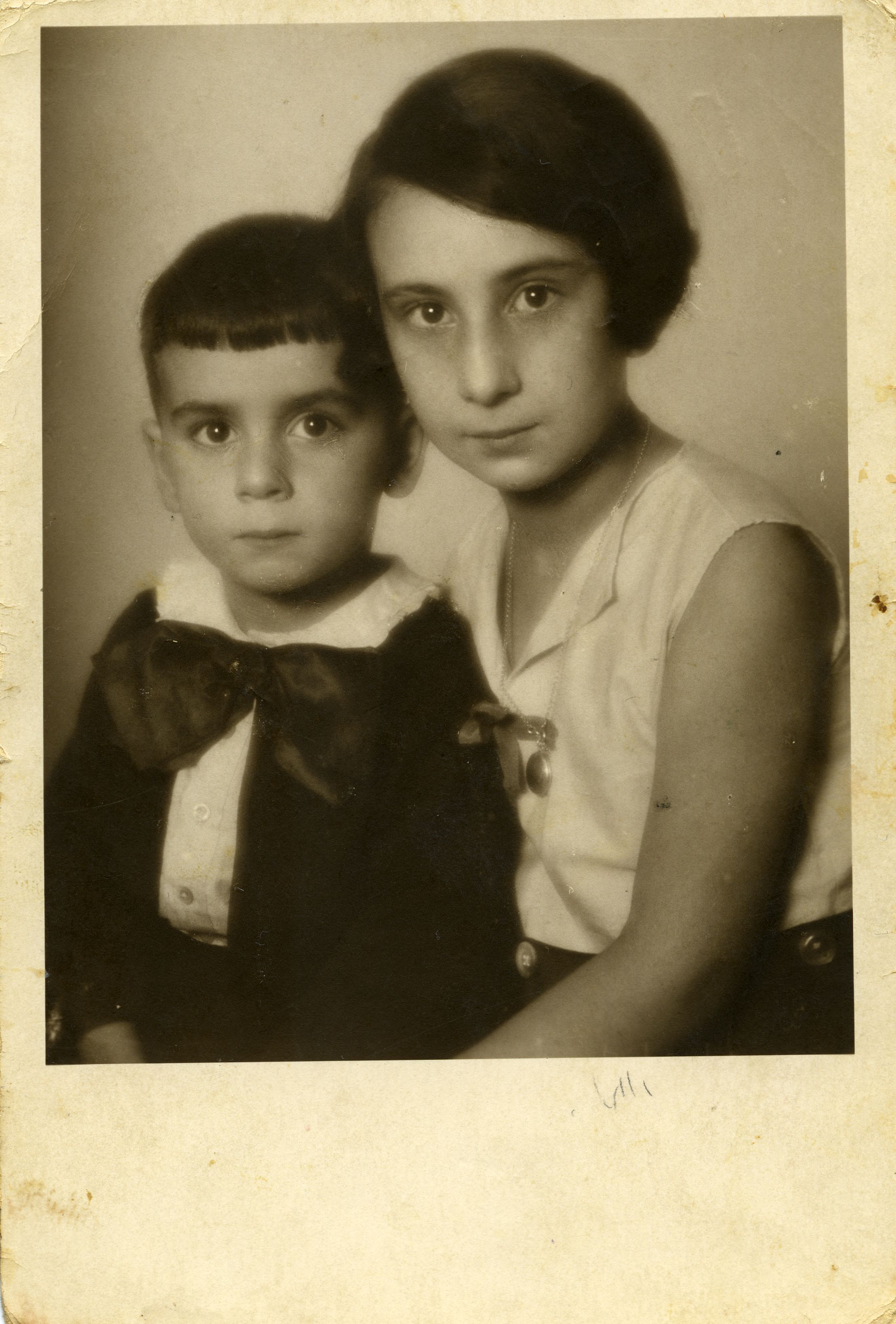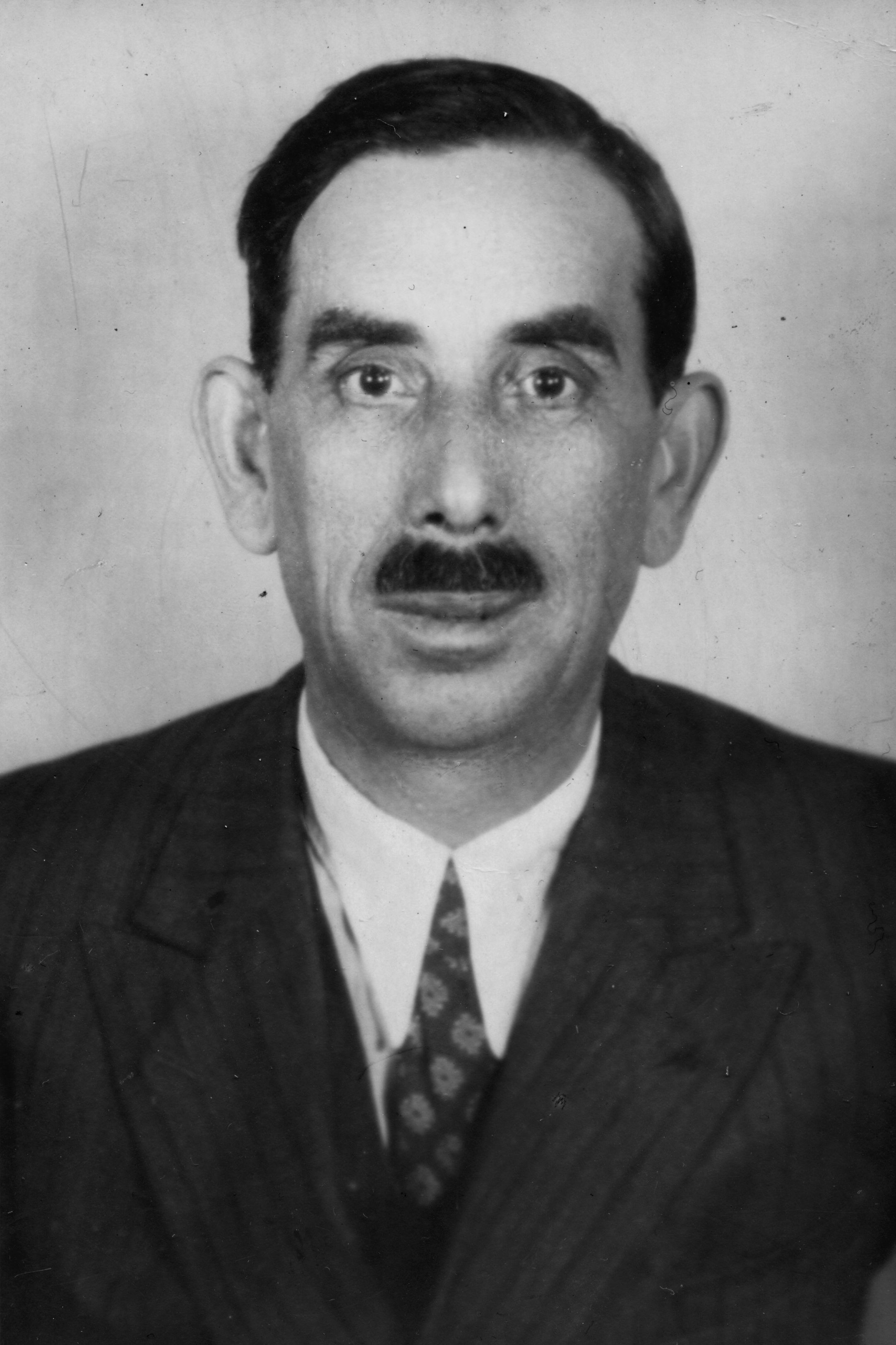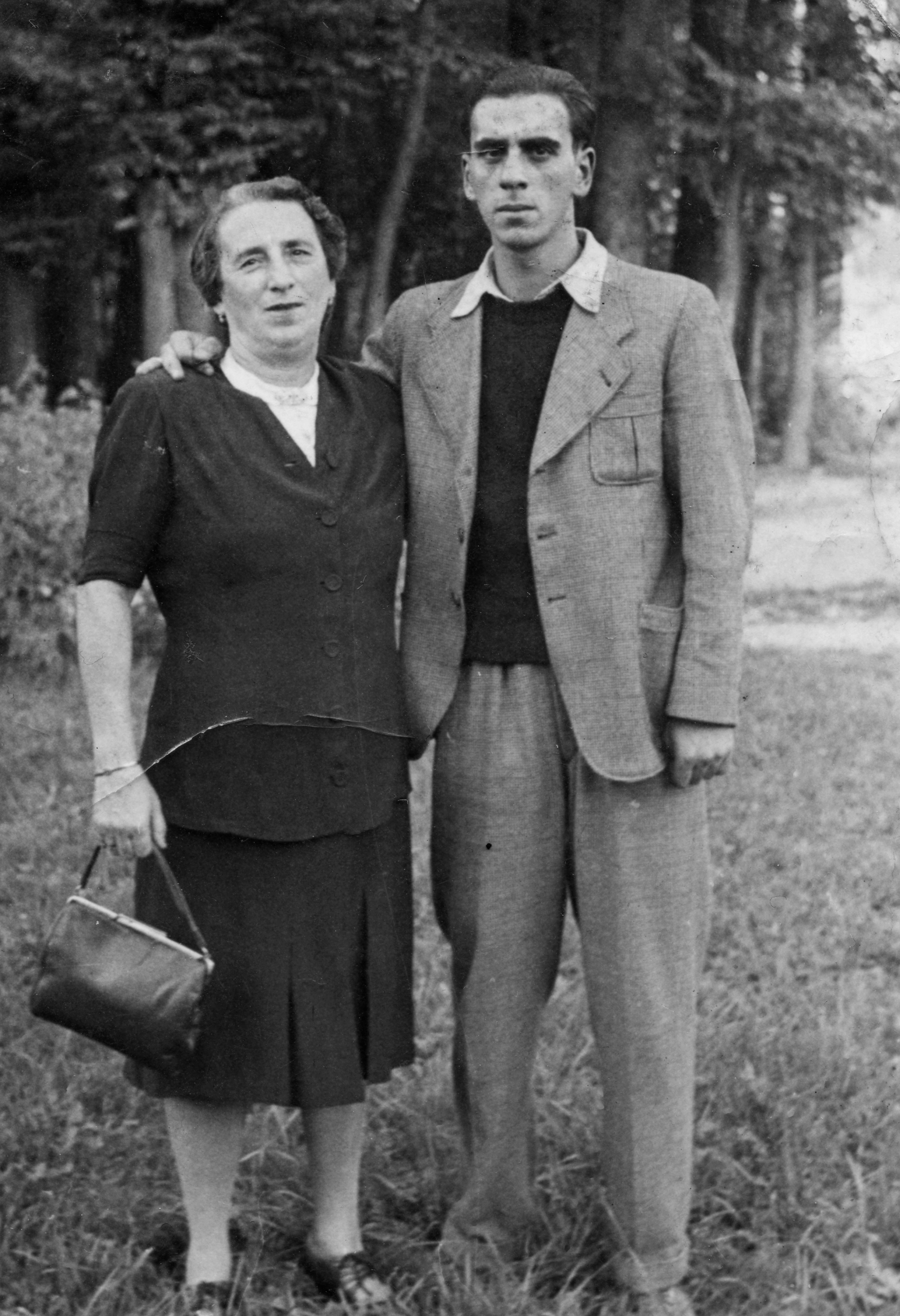Leo Luster
(Vienna 1927 – Tel Aviv 2017): Jewish concentration camp survivor
“Come what may, it doesn’t matter. If you survive, then good. If not, also good. That’s it!”
These lines, written just after the liberation at Blechhammer, a subcamp of Auschwitz, provide an insight into the barely comprehensible state of mind of the survivor Leo Luster. This attitude is far from being fatalist; it is simply that it does not conceal how hopelessness and hope intertwined, that strength too often seemed lost. Leo Luster came to Auschwitz from Theresienstadt in 1944; his 53-year-old father was murdered immediately upon arrival. Leo Luster was taken to the Gleiwitz subcamp, where railway wagons were repaired by forced labourers. Leo Luster’s autobiographical texts certainly have literary quality, as the following passage shows: “They squeeze the last drop out of you, the lying dogs, and babble on about culture. They kick, kill, whip, gas, slay thousands – and talk of culture... But you are tired, you think only of the coming meal, of sleep.”
Leo Luster grew up with his parents and his sister Helene, six years his senior, in a one-bedroom apartment at Schreygasse 12 in Vienna’s Leopoldstadt district. They were a religious Jewish family, so Leo was sent to the Talmud Torah school at Malzgasse 16, which was intended for pious Jewish children. Both parents came from Galicia; his father made a living selling the goods produced by a textile factory in Gänserndorf. Antisemitism was a feature of his childhood, as was the Vienna-specific phenomenon where the integrated local Jewish population looked down on the “Polish” Jews with disparagement. His mother’s distinctive Yiddish accent made it easy to recognise her origins.
After the “Anschluss”, his father lost his salesman job. He was arrested during the November pogrom. The caretaker of the building where the family lived was a Nazi; one day he entered the flat and threw the family out. They had to move into his basement flat. His father found a job at the Jewish Community which temporarily afforded the family some protection and helped daughter Helene to flee illegally to Palestine. In September 1942, the family was summoned to the assembly camp at Kleine Sperlgasse 2a, Leo Luster’s former school. They were taken to Aspang railway station in open trucks. Like others, he described the anti-Jewish hatred of the Viennese: “We were still being pelted with tomatoes and the Viennese were shouting: ‘Out with you Jews!’”
These lines, written just after the liberation at Blechhammer, a subcamp of Auschwitz, provide an insight into the barely comprehensible state of mind of the survivor Leo Luster. This attitude is far from being fatalist; it is simply that it does not conceal how hopelessness and hope intertwined, that strength too often seemed lost. Leo Luster came to Auschwitz from Theresienstadt in 1944; his 53-year-old father was murdered immediately upon arrival. Leo Luster was taken to the Gleiwitz subcamp, where railway wagons were repaired by forced labourers. Leo Luster’s autobiographical texts certainly have literary quality, as the following passage shows: “They squeeze the last drop out of you, the lying dogs, and babble on about culture. They kick, kill, whip, gas, slay thousands – and talk of culture... But you are tired, you think only of the coming meal, of sleep.”
Leo Luster grew up with his parents and his sister Helene, six years his senior, in a one-bedroom apartment at Schreygasse 12 in Vienna’s Leopoldstadt district. They were a religious Jewish family, so Leo was sent to the Talmud Torah school at Malzgasse 16, which was intended for pious Jewish children. Both parents came from Galicia; his father made a living selling the goods produced by a textile factory in Gänserndorf. Antisemitism was a feature of his childhood, as was the Vienna-specific phenomenon where the integrated local Jewish population looked down on the “Polish” Jews with disparagement. His mother’s distinctive Yiddish accent made it easy to recognise her origins.
After the “Anschluss”, his father lost his salesman job. He was arrested during the November pogrom. The caretaker of the building where the family lived was a Nazi; one day he entered the flat and threw the family out. They had to move into his basement flat. His father found a job at the Jewish Community which temporarily afforded the family some protection and helped daughter Helene to flee illegally to Palestine. In September 1942, the family was summoned to the assembly camp at Kleine Sperlgasse 2a, Leo Luster’s former school. They were taken to Aspang railway station in open trucks. Like others, he described the anti-Jewish hatred of the Viennese: “We were still being pelted with tomatoes and the Viennese were shouting: ‘Out with you Jews!’”
Literature and sources
Leo Luster, Die Feuer von Auschwitz lodern und brennen
Leo Luster, Wir fahren aus Theresienstadt …
Leo Luster, Nachtschicht
All: https://www.nationalfonds.org/leo-luster-664.html (23.11.2021).
Interview with Leo Luster by Tanja Eckstein, August 2010: http://www.centropa.org/de/biography/leo-luster (23.11.2021.
Interviews mit Leo Luster can be accessed through the project “weitererzählen”: https://www.weitererzaehlen.at/interviews/leo-luster (23.11.2021).



